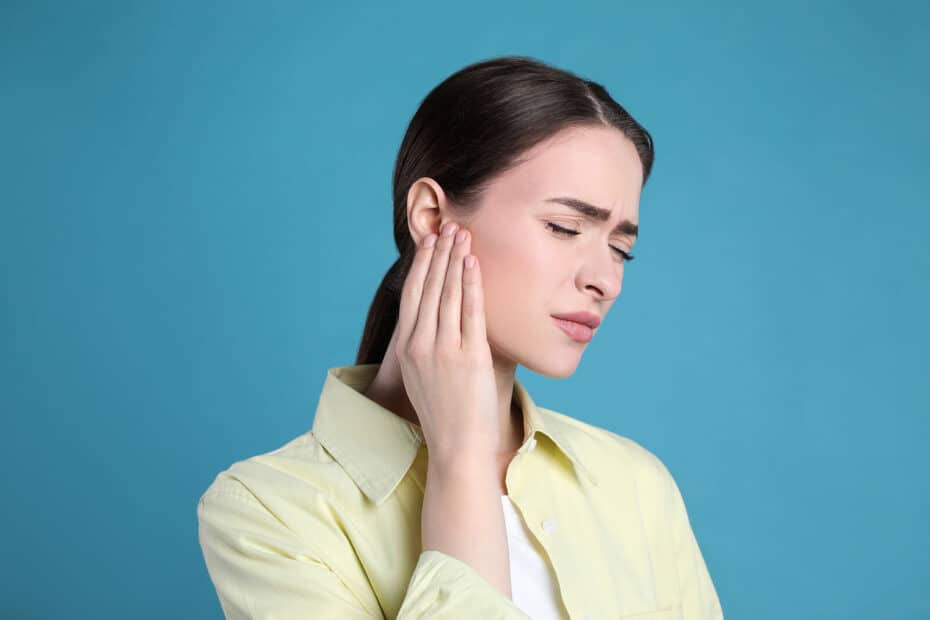Did you know that hearing loss is the third most common medical condition that people live with today? Nearly 1 in 5 people have some degree of hearing loss which affects over 48 million people. Though it is extremely common, hearing loss still remains widely undertreated. It is estimated that only a third of people who could benefit from treatment, actually receive it. Untreated hearing loss can have multifaceted effects on everyday life – straining hearing and communication which can take a toll on relationships, social life, and overall health. It is important to know what the early signs of hearing loss are so that you can readily identify any changes you may experience which supports early intervention.
What is hearing loss?
Hearing loss is a medical condition that reduces one’s ability to hear and process speech as well as sound. There are several factors that can cause hearing loss including: exposure to loud noise, existing medical conditions, aging, head injuries, and inner ear disorders. Most often, hearing loss occurs when sensory cells in the inner ear are damaged. There are thousands of sensory cells in the cochlea adn these cells play a major role in how sound is absorbed and processed. Sensory cells convert incoming soundwaves into electrical signals which get sent to the brain. The brain is then able to continue processing these signals which includes assigning meaning to them, allowing us to understand what we hear.
When these sensory cells are damaged, their ability to perform their essential function is compromised. This results in the brain receiving less auditory information, causing chronic hearing loss. Unlike other types of cells in the human body, sensory cells in the inner ear do not regenerate. Humans are actually born with all the sensory cells in the inner ear that we will ever have. There are also no interventions or ways these cells can be repaired once they are damaged. This causes permanent hearing loss.
What are early signs of hearing loss?
Hearing loss typically occurs gradually so symptoms may not be recognized immediately. This often contributes to a delay in treatment. In fact, it takes an average of 7 years for people to address their hearing loss symptoms. Being able to recognize symptoms can help you intervene early which can really protect your hearing health and wellness. Early signs of hearing loss include:
- Tinnitus: a ringing or buzzing like noise in one or both ears that only you can hear.
- Sounds are muffled or distorted.
- Struggling to keep up with conversations, especially in places with background noise.
- Having difficulty hearing over the phone.
- Frequently asking others to repeat themselves, speak louder, and/or slower.
- Responding with “huh” or “what” often.
- Lip reading to help identify individual words.
- Pretending to hear to get through a conversation.
- Turning up the volume on the TV and/or other electronic devices.
- Feeling drained or tired after conversations and social interactions.
- Being able to hear more clearly out of one ear compared to the other.
These symptoms can be mild to more severe, taking a toll on hearing and communication. To cope, it is common to avoid conversations as much as possible. Social withdrawal is a major effect of untreated hearing loss. Not only does this affect relationships and social life, but also mental health. Studies show that untreated hearing loss can increase the risk of depressive symptoms. If you recognize any of these symptoms, it is important to intervene and have your hearing assessed soon.
How is hearing loss diagnosed?
There are comprehensive hearing evaluations that are used to diagnose hearing loss. Hearing tests involve a painless and nonviolence process that measures hearing apc sites in both ears. One of the most common tests is pure tone audiometry testing in which novels wearing headphones as sounds are played at different pitches. You are asked to indicate what you can hear by pressing a button or raising your hand. This captures the softest sounds you are able to hear which identifies your hearing thresholds. Once your hearing needs are identified, your hearing healthcare provider is able to tailor treatment to meet those needs.
How is hearing loss treated?
The most common treatment for hearing loss is hearing aids. These are electronic devices that are designed to absorb, amplogy, adn process speech as well as sound. This provides ample hearing support, alleviating symptoms and maximizing one’s hearing capacity. Hearing aids enable people to hear and communicate much more easily. This strengthens communication and allows people to live active lives.
Contact us today to learn more about hearing loss and to schedule an appointment for a hearing consultation.

